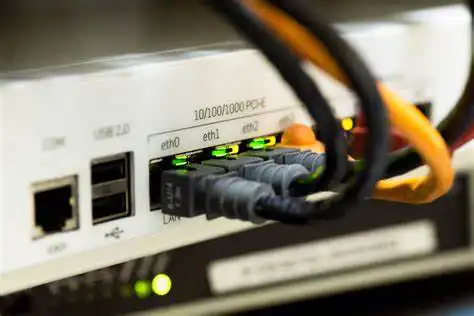Often government implementations turn out to have unforeseen consequences. One such situation could be the federal government's proposed kill switch mandate for vehicles. This new law has raised serious questions about personal privacy infringement. Many are concerned about a subtle erosion of liberty disguised as an effort towards public safety.
This new automotive measure, if implemented, would allow remote immobilization of vehicles. The purported benefits of this rule include increased recovery rates of stolen vehicles and control over high-chase police pursuits. The authorities argue it could potentially minimize damage and protect lives in most cases, asserting that the advantages outweigh the potential privacy issues.
Contrarily, the unique, switched-on society we live in is no stranger to the misuse of such measures. One cannot overlook the disconcerting prospects of hackers exploiting this new technology. They could hold people's vehicles to ransom, or even misuse this power for more devilish purposes.

The invasion of privacy here revolves around the idea of who can access and control the switch. It's frighteningly intrusive having strangers gain potential control over your vehicle's movement without your consent. This power could easily fall into the wrong hands, leading to frightening possibilities.
On the flip side, technological advancements continue unabated. We've already witnessed the ascent of planes with autopilot and drones that can be controlled remotely. Against this backdrop, the thought of remotely disabling a car doesn't seem that revolutionary. It is just the next logical step.
However, that doesn't mean we should ignore the inherent privacy issues involved. A balance needs to be struck between leveraging technological improvements for public safety and steering clear of Orwellian possibilities. It's important to scrutinize the long-term implications of granting this remote power to unknown entities.
In what we naively term a free world, silent variables are continuously at play. As the government gains more and more control, freedom and privacy often take a backseat. While safety and security are essential, there's a fine line between protecting citizens and infringing upon their rights.
The murky waters of data misuse have already been stirred, with companies like Facebook facing backlash for privacy breaches. This new mandate could lead to an unprecedented level of vehicle tracking, expanding the interest of not only ambulant advertisers but potentially malevolent actors as well.
The constant danger presented by state surveillance and control continues unabated. We live in a digitally connected world where our movements are constantly monitored, right down to which aisle of the supermarket we linger in. This reality has led to a constant battle between security and privacy, raising questions about the level of intrusion we're willing to accept for perceived safety benefits.
The debate surrounding the ethics of data management is not new. However, this mandate opens up a fresh avenue for potential misuse and deeper invasions of privacy. A regulatory balance should draw the line between public safety, privacy, and the potential for misuse.
Most vehicle owners would likely welcome anti-theft measures that help locate and recover stolen vehicles. Nevertheless, such initiatives need to be pursued with care. The power to immobilize a vehicle remotely holds significant implications for freedom of movement and personal autonomy.
It is important we not forget that the switch could potentially affect more than just criminals. It could disrupt the daily commute of law-abiding citizens caught in the crossfire of zealous law enforcement.
The question is, where does it stop? A universal kill switch ordinance might seem well-intentioned and beneficial. Still, it has the potential to tip us over the slippery slope towards a heightened surveillance state where every move is tracked and controlled.
These intrusive measures can carry a heavy price: the relinquishing of individual freedoms. This encroachment on people's right to privacy could strip us all of our freedom of movement, pushing us a step closer to a monitored society devoid of personal autonomy.
Instilling a vehicle kill switch mandate needs to be evaluated from all angles. It is essential to weigh the possible repercussions against the possible benefits. With the power to instantly halt transportation comes the potential for misuse, and these impacts need to be thoroughly analyzed before the passing of such mandates.
Moreover, the public needs to be part of these conversations. It is, after all, their right to privacy and freedom of movement at stake. Transparency should be sought, and any proposals of this level of intrusion need to be publicly debated ahead of implementation.
One cannot undermine the importance of public safety, but it should not be pursued at the cost of privacy. The government's mandate for a vehicle kill switch raises potential privacy issues that need to be acknowledged and corrected before it evolves into a potent weapon for any entities with vested interests.
To sum it all up, the proposed kill switch mandate is a distinct demonstration of how technologies intended for public safety can pose significant threats to individuals' privacy. Hopefully, this piece has highlighted the stark need for a balanced approach to technological progress, where the benefits of state-of-the-art initiatives are tempered by a deep-rooted respect for individual rights and freedoms.
We need to understand and remember the words of Benjamin Franklin, who famously said: “Those who would give up essential Liberty, to purchase a little temporary Safety, deserve neither Liberty nor Safety.”